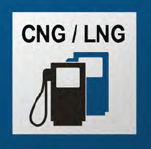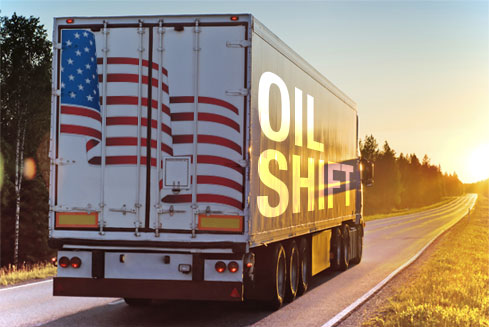Where Can I Fill Up? 2013 Assessment

This updated edition of Where Can I Fill Up? expands on the information in the August 2012 report. It provides more than 20 pages of new information on who is building NGV fueling infrastructure, along with more detail on where and how this infrastructure is being added and government policies pertaining to the development of NGV fueling infrastructure.
Where Can I Fill Up?
This new 60 page ACSF report provides a comprehensive up-to-date survey of private sector and state government initiatives to build out natural gas vehicle (NGV) fueling stations across America. It covers investments in new CNG and LNG facilities and contains detailed state-by-state profiles of incentives (tax credits, loans, grants, public utility programs) now available to promote NGV infrastructure.
Politico 2012: Shale Gas Rocks The Economy…And Politics
During the recent Republican and Democratic presidential nominating conventions, ACSF distributed more than 60,000 copies of a special eight-page newspaper supplement about America’s shale gas story and the Foundation’s policy work. This unique advertising supplement was prepared by ACSF in conjunction with the Washington D.C.-based Politico newspaper and was inserted in the local Tampa Bay Times and Charlotte Observer newspapers provided to all convention participants. More than 30,000 copies of the supplement were also distributed in Washington D.C. as part of a post-convention issue of Politico.
Oil Shift: The Case for Switching Federal Transportation Spending to Alternative Fuel Vehicles


-
Get Involved
- Learn About the Contracts
- Read the Oil Shift Report (PDF)
- FAQ
- Events
- Contact Us

The GSA Agrees
The GSA recently decided to adopt provisions of our plan by including clean fuel and environmental metrics in its upcoming $1.5 billion government-wide overnight delivery contract. Read our press release, and our original letter to GSA’s Administrator.
We are helping federal agencies purchase greener, more fuel efficient, lower cost shipping and delivery services.That will put more clean trucks on the road in 2015.
How It All Began
In 2012, we launched a new campaign to cut back the level of harmful pollution associated with hauling freight and packages to and from the federal government — a $150 billion a year business.
Our landmark 2012 Oil Shift report by Gregory C. Staple and Warren G. Lavey made the case for switching federal transportation spending to alternative fuel vehicles. The report showed how the government could do that better by shifting more and more of its trucking and overnight delivery contracts to vendors that have more efficient fleets and use greater volumes of alternative non-petroleum fuels, such as natural gas and electric vehicles.
Our Oil Shift campaign has generated support from a broad range of organizations including the Electric Drive Transportation Association (EDTA), the American Council on Renewable Energy (ACORE), and the Advanced Energy Economy (AEE). We also garnered endorsements from leading environment and public health advocates.
Washington has begun to listen. First, GSA decided to adopt provisions of our plan by including clean fuel and environmental metrics in a $1.5 billion government-wide overnight delivery contract. Then, on March 19, 2015, President Obama issued a new Executive Order on federal sustainability that, among other things, includes requirements for considering environmental impacts in the future procurement decisions of the seven largest procuring agencies.
The Road Ahead
We have asked the Department of Defense to make cleaner domestic fuels a priority for its transport vendors. With your help, we can improve air quality, create more American jobs, and promote energy independence.
Energy 101: Natural Gas Transportation

As America produces more and more natural gas, lots of people are thinking about using clean-burning natural gas to run our cars and trucks. It’s not only likely to cost less but it could cut back our oil imports a whole lot, especially from unfriendly regimes.
Natural Gas Vehicles

FOR MORE INFORMATION
NATURAL GAS VEHICLES (NGVs): An Economical and Clean Alternative
Natural gas can also be compressed and used to fuel the internal combustion engines used in cars, trucks and buses.
- Reduce carbon monoxide emissions 90%-97%
- Reduce nitrogen oxide emissions 35%-60%
- Potentially reduce non-methane hydrocarbon emissions 50%-75%
- Emit fewer toxic and carcinogenic pollutants
- Emit little or no particulate matter





